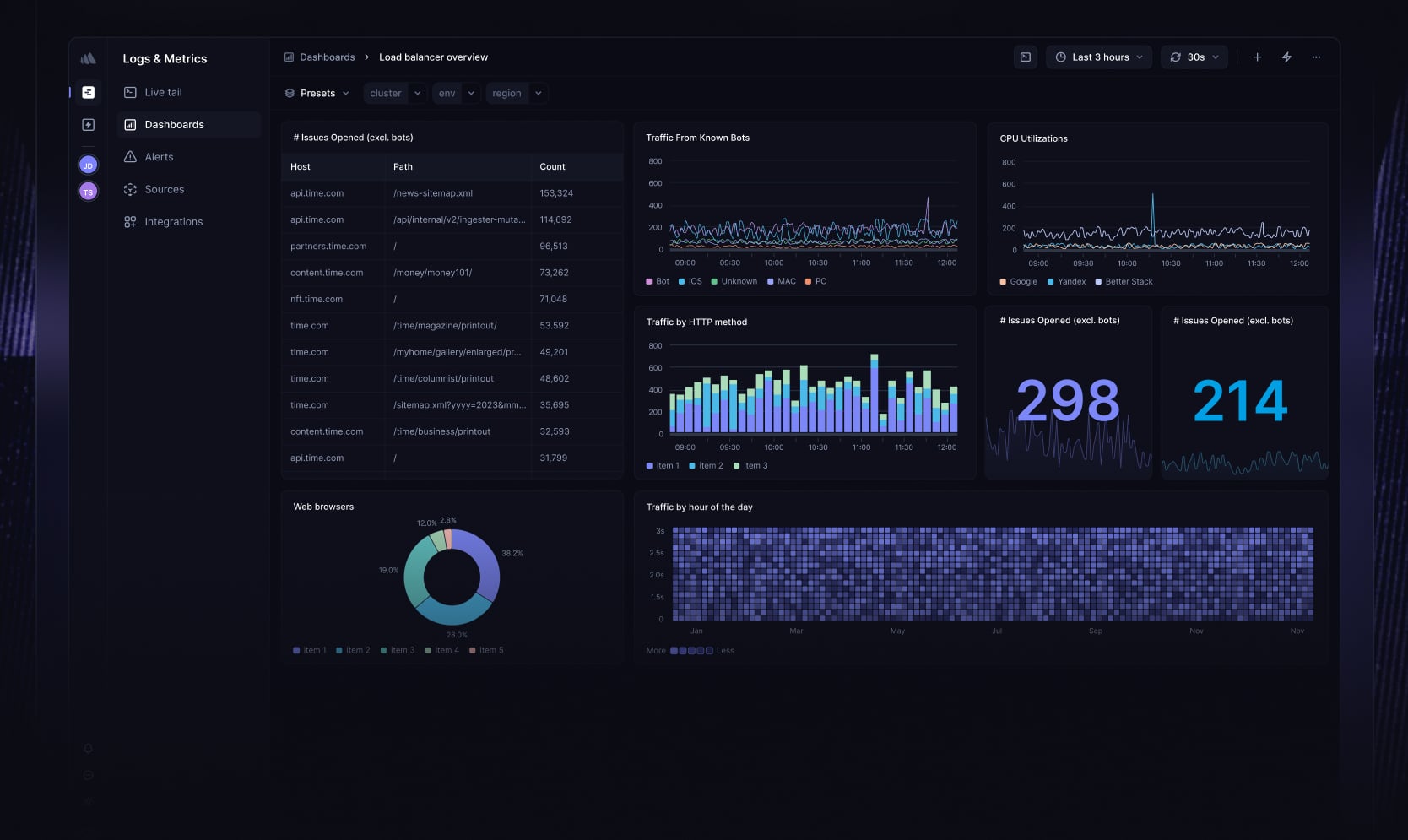
Monitoring software and infrastructure in production, the practice known as observability is becoming increasingly harder — not easier.
According to recent survey, 69% of developer operations professionals say that their observability data is expanding at a “concerning” rate, making it more challenging to spot anomalies. Meanwhile, professionals are being forced to juggle a growing number of observability tools.
Juraj Masar and Veronika Kolejak experienced the frustrations firsthand as software developers. Masar is a three-time startup founder, most recently having served as VP of engineering at crowd-selling platform Represent.com. Kolejak, a biochemist by education, previously worked at Shopify, Google and Merck in various engineering roles.
“Today, developers are using dozens of tools that need to be integrated, cost a lot and feel like they were designed in the 2000s,” Masar told TechCrunch in an email interview. “And they take ages for users to comprehend fully.”
Masar’s and Kolejak’s answer is Better Stack, an observability platform that they launched in 2021 to combine monitoring, logging, and incident management into a single dashboard. With support for monitoring apps, websites, servers, databases and more, Better Stack delivers alerts, helps schedule things like on-call duties and taps algorithms to normalize metrics from different logs and sources.
Better Stack doesn’t stand alone in the market for observability suites. Among its rivals is Observe, which offers tools for storing, managing and analyzing machine-generated data and logs. There’s also Chronosphere (valued at over $1.6 billion), Pantomath and Honeycomb, the last of which secured a $50 million investment last April.
But Masar asserts that Better Stack offers several advantages over rivals.

One launched within the last few months: AI-based incident silencing. According to Masar, the capability is designed to enable engineers to better distinguish critical incidents from noise, with any luck saving those engineers from waking up in the middle of the night to respond to misconfigured or benign alerts.
Masar also claims that Better Stack is cheaper and faster than the competition — and more intuitive for engineers to use, thanks to its collaborative approach to data querying. Whether there’s truth to that or not, Better Stack’s seemingly had no trouble attracting customers, growing its client base to over 4,000 brands and government agencies in Singapore, Canada, Norway, Australia and the U.K.
In a vote of confidence from investors, Better Stack — which Masar claims is profitable — recently raised $10 million as part of a tranche led by Kaya with participation from angel investors including Box CEO Aaron Levie. The new cash brought Better Stack’s total capital raised to $28.6 million, which Masar, Better Stack’s CEO, says is being put toward growing the startup’s workforce from 28 employees to 50 by the end of the year and developing new products and services.
Carl Fritjofsson, general partner at Creandum, added in an emailed statement: “At Creandum, we deeply care about product experiences, and Better Stack not only redefined what beautiful and intuitive observability products look like, but ultimately Better Stack customers will be empowered to build better products themselves. With 10x lower cost and 10x better performance, we’re convinced that Better Stack will become an important part of software infrastructure.”


